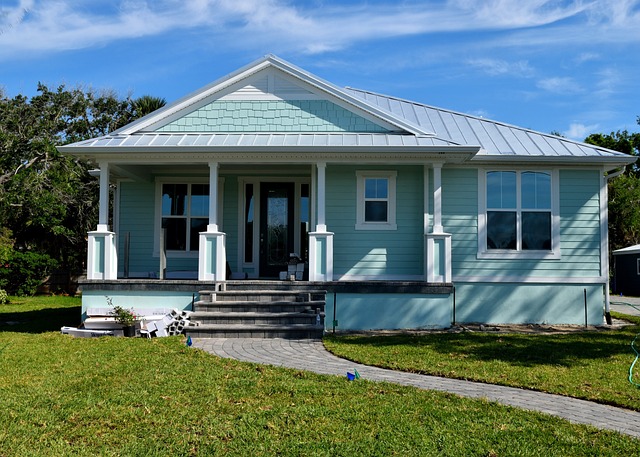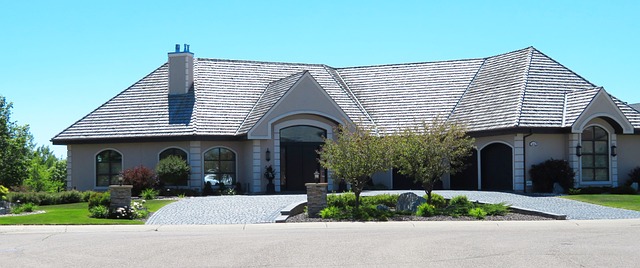Investing in an Executive Condominium (EC) under the Housing & Development Board (HDB) framework in Singapore can be lucrative for rental yields if approached with strategic planning. The location of the EC is pivotal, with preference given to mature estates or areas undergoing rejuvenation. Larger units with multiple bedrooms tend to attract higher rents as they are favored by families seeking long-term leases. Investors should ensure their properties are well-maintained and equipped with modern amenities to cater to tenant expectations. Maintaining compliance with HDB's regulations, including registering the rental agreement with the National Environment Agency (NEA) and adhering to the Master Deed and by-laws, is essential for a smooth rental experience. A competitive pricing strategy, excellent property condition, and strategic marketing focusing on the EC's desirable features and proximity to essential services will enhance its attractiveness to potential tenants, thereby optimizing rental income. Understanding the legal framework specific to EC rentals, including tax implications and tenant responsibilities, is crucial for successful rental management.
Executive Condominium (EC) rental properties have emerged as a significant opportunity for real estate investors in Singapore, offering a unique blend of private condo facilities and public housing benefits. This article delves into the lucrative potential of ECs, exploring their distinct status, the factors influencing their rental appeal, and the intricacies of navigating the rental market within the HDB framework. We’ll guide you through understanding the nuances of ECs, their rise as a compelling investment, and provide actionable insights to maximize your rental income. Key considerations include market trends, legal regulations, and strategic management that cater to both the property’s appeal and tenant satisfaction. With an emphasis on the Executive Condominium HDB, this comprehensive guide is designed to empower investors to make informed decisions and optimize their rental earnings in Singapore’s vibrant property landscape.
- Understanding Executive Condominiums (ECs) and Their Unique Status
- The Rise of ECs as a Lucrative Real Estate Investment
- Navigating the Rental Market for Executive Condominium HDB
- Key Factors Affecting Rental Yields for ECs
- Establishing Your Executive Condominium HDB as an Attractive Rental Option
- Legal Considerations and Regulations Governing EC Rentals
- Maximizing Income: Tips and Strategies for Managing Your EC Rental Property
Understanding Executive Condominiums (ECs) and Their Unique Status

Executive Condominiums (ECs) represent a unique housing type in Singapore, blending the features of both public and private residential properties. These are hybrid developments initiated by the Housing & Development Board (HDB) for Singaporeans who aspire to live in a condominium but are not ready financially to purchase a private condo. To qualify for an EC, applicants must typically be first-time flat owners or meet specific eligibility criteria set by the HDB and the Central Provident Fund (CPF). After satisfying the minimum occupation period of five years, which allows residents to call the unit their matrimonial home, the property transitions from public to private status. This transition affects its marketability and rental potential, making ECs an attractive investment for those looking to generate condominium rental income.
The transition from HDB flat to Executive Condominium status after five years also opens up a world of possibilities for investors. Unlike traditional HDB flats, ECs offer more luxury and facilities such as swimming pools, gyms, and recreational areas that are conducive to higher rental yields. The proximity to various amenities, transport networks, and the ability to sublet units to professionals or families make them a sought-after option in the property market. Investors considering Executive Condominium HDB rentals should note that the rental yield can be competitive with private condos, given the right location and market conditions. Understanding the unique status and regulations governing ECs is crucial for investors to maximize their rental income potential while navigating the nuances of this housing category in Singapore.
The Rise of ECs as a Lucrative Real Estate Investment

Executive Condominiums (ECs) have emerged as a significant segment within Singapore’s real estate market, offering a unique blend of private property features and public housing benefits. The rise of ECs as a lucrative investment opportunity stems from their strategic positioning for both upgraders from Housing & Development Board (HDB) flats and young families looking for a step up from public to private living. With the introduction of the Family Nuptial Preparedness Scheme (FNS), which provides enhanced grants for eligible couples, ECs have become an even more attractive proposition for those aspiring to own a larger home.
The appeal of ECs lies in their dual-market nature; they are subject to both resale price ceilings similar to HDB flats and the growth potential of private condominiums. This unique status allows investors to capitalize on the robust resale market while also benefiting from the appreciation potential akin to private properties. Moreover, the flexible lease terms associated with ECs provide investors with a degree of flexibility that is often not available in pure private condominiums. As the demographic trends in Singapore continue to favor family-centric living and government policies support home ownership, investments in Executive Condominiums are poised to yield substantial rental income, making them a compelling choice for real estate investors.
Navigating the Rental Market for Executive Condominium HDB

Navigating the rental market for Executive Condominium (EC) HDB units requires a strategic approach, as this housing type offers unique benefits that blend the features of both public and private housing. Prospective tenants will find ECs an attractive option due to their sizeable living spaces and comprehensive facilities, which often include swimming pools, gymnasiums, and playgrounds. These units are particularly popular among middle-income families, offering a balance between affordability and comfort. For investors considering EC rental income, understanding the lease terms is crucial. Unlike HDB flats, ECs are subject to a minimum occupation period (MOP) of five years before they can be sold or subleased to Singapore citizens and permanent residents. Post-MOP, however, these properties become highly desirable among a broader tenant pool, including PRs and foreigners eligible for the Long Term Visit Pass, thus expanding potential renter options and enhancing the investment’s viability.
The rental yield for EC HDB units can be influenced by various factors, including their location, the condition of the unit, market demand, and proximity to amenities such as schools, shopping centers, and public transportation. Given the competitive nature of the rental market, landlords should consider these elements carefully when setting rental prices to maximize their returns. Additionally, staying informed about changes in housing policies and trends within the EC segment can provide a significant edge in managing and leasing these properties effectively. Prospective renters often prioritize convenience and connectivity; thus, understanding which ECs are located near major hubs or within established estates with comprehensive services can help investors tailor their rental offerings to meet this demand.
Key Factors Affecting Rental Yields for ECs

When considering the rental yields for Executive Condominiums (ECs) under the HDB umbrella, several key factors play a pivotal role in determining the profitability of such investments. The location of the EC is paramount; units situated near mature estates or within regions that are undergoing rejuvenation tend to attract higher rental yields due to their desirability and proximity to amenities. Additionally, the age of the development can influence demand, as newer ECs might offer modern amenities and facilities that appeal to tenants.
The size and type of unit also significantly impact the rental market performance. Larger units with multiple bedrooms are often favored by families looking for long-term rentals, potentially commanding higher rents compared to smaller or studio units, which may attract single professionals or couples. Furthermore, the mix of facilities within the EC, such as swimming pools, gyms, and playgrounds, can enhance its appeal, potentially leading to higher rental prices and occupancy rates. The tenure of the lease and the terms set by the lessor also affect rental yields; shorter leases might offer more flexibility but could come with a premium, while longer leases may provide stability over time. Investors should carefully analyze these factors in conjunction with market trends and demographic shifts to maximize their rental yields from Executive Condominium HDB investments.
Establishing Your Executive Condominium HDB as an Attractive Rental Option

When considering rental income potential, positioning your Executive Condominium HDB as an attractive option in the market is pivotal for success. To achieve this, focus on enhancing the property’s appeal through strategic improvements that cater to the preferences of potential tenants. Firstly, ensure that your condominium is well-maintained and presents a clean, modern aesthetic. Small renovations or updates to fixtures and fittings can make a significant impact, creating a space that is both functional and visually pleasing. Secondly, consider the location’s accessibility and proximity to essential amenities such as shopping centers, transportation hubs, and recreational facilities, as these factors are often high on renters’ priority lists. Additionally, highlight any unique features or benefits of your Executive Condominium HDB, such as larger living spaces, shared facilities like swimming pools or gyms, and the security and community aspects that come with living in an HDB. By leveraging these attributes and maintaining a competitive rental price, you can attract a diverse range of tenants who are seeking a comfortable and convenient living environment. Tailoring your property to meet these demands will not only enhance its rental appeal but also ensure a steady stream of income from your Executive Condominium HDB investment.
Legal Considerations and Regulations Governing EC Rentals

When considering the rental of an Executive Condominium (EC) unit under the Housing & Development Board (HDB), it is imperative to be well-versed in the legal framework and regulations that govern such arrangements. ECs are a hybrid housing type in Singapore, designed for couples or families who meet certain criteria but offer the condominium privileges of private properties. Prospective landlords must familiarize themselves with HDB’s stipulations, which differ from those applicable to private condominiums. For instance, only Singaporean citizens are allowed to rent EC units, and there are restrictions on the lease duration, typically not exceeding a 30-year term.
Moreover, the lease agreement for an EC must be registered with the National Environment Agency (NEA), and the lessee must obtain NEA’s written approval before taking up residence. The rental income derived from these properties is subject to taxes as per the Inland Revenue Authority of Singapore’s guidelines. It is also crucial to adhere to the Master Deed and by-laws set out by the EC development, which may have specific clauses related to subletting or assignment of the lease. Landlords must ensure that their tenants are aware of these regulations to avoid any breaches that could lead to penalties or disputes. Understanding and complying with these legal considerations is essential for a smooth rental experience with an Executive Condominium HDB unit.
Maximizing Income: Tips and Strategies for Managing Your EC Rental Property

When it comes to maximizing income from your Executive Condominium (EC) rental property, strategic planning and proactive management are key. To start, understanding the unique aspects of an EC—a hybrid of a private condo and an HDB flat—can position you for success. Positioning your EC to appeal to the right demographic, such as young families or upgraders from HDB flats, can ensure consistent rental demand.
Optimizing your rental income involves a mix of market knowledge, property presentation, and maintenance. Firstly, price your EC competitively by researching similar properties in the area to gauge fair market rates. Regular maintenance and minor renovations that enhance the living experience, without significantly increasing costs, can make your property more attractive than others on the market. Additionally, offering value-added services, such as complimentary Wi-Fi or a basic home starter kit, can differentiate your rental and justify a slightly higher price point. Leveraging the proximity to key amenities and transport nodes in your marketing materials will also highlight the convenience and desirability of your EC. By implementing these strategies, you can effectively manage your rental property to maximize your income from the Executive Condominium HDB investment.
navigating the nuances of Executive Condominium HDB rental income can yield substantial returns for investors. This article has shed light on the unique status of ECs, their emergence as a lucrative real estate investment, and the key factors influencing rental yields. Prospective landlords should consider the specific characteristics of ECs to make their properties attractive to renters. It’s crucial to stay abreast of the legal framework and regulations that govern these rentals to ensure compliance and maximize income potential. By implementing strategic management practices, investors can position their Executive Condominium HDB as a sought-after rental option, capitalizing on the growing demand within this market segment. With careful planning and an understanding of the local rental landscape, investors can look forward to a steady stream of rental income from their EC investments.



